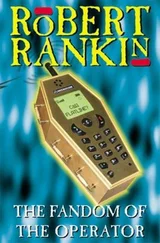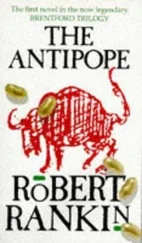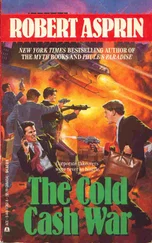“Yes, sir,” said Will.
Jarvis Santos shook his head, rippling considerable jowls. He turned and waddled away, leaving Will smiling broadly at his terminal screen. Will read the words upon it: The works of Richard Dadd , and there followed a brief history of this Victorian artist.
Will read these words, and then he whistled. This really couldn’t be much better: Richard Dadd was one of Will’s all-time favourites; a genuine Victorian genius (although, it had to be said, a complete stone-bonker too). Like many rich Victorians, Dadd had taken the Grand Tour. He had travelled through distant lands, visited and painted Egypt, moved through Africa and India and at the end of it all, had returned to England, quite mad. His father, worrying for the mental health of his son had taken Richard under his wing and was escorting him to hospital when a singular tragedy occurred. They had booked into a hotel in Cobham, in Surrey, for the night. Richard and his father had gone out for an evening walk. But Richard returned alone and hastily made away from the hotel. He had murdered his father in the woods and, according to legend, feasted on his brain.
Dadd had murdered his dad. He made it as far as France before he’d been arrested. At his trial it became apparent to all that he was hopelessly insane. He was committed to St Mary of Bethlehem’s asylum, where he spent twenty years before being transferred to Broadmoor for the final twenty-two years of his life. It was at Broadmoor that he painted his acclaimed masterwork, The Fairy Feller’s Masterstroke [2] You really should see this painting; it's in the Tate Gallery.
.
Although the picture is only fifty-four centimetres by thirty-nine, it took Dadd nine years to paint, and it remains incomplete. It is a remarkably complex piece of work which has been interpreted in many ways. Some scholars believe it to be allegorical, a satire on the times. Others consider it to be metaphysical, embodying some great and undiscovered truth.
Its composition is this. In the foreground stands the fairy feller of the title. He holds aloft an axe and is awaiting the precise moment to swing it and cleave a large nut, which will then be fashioned into a new coach for Queen Mab. Behind the feller, the fairies look on in expectation: many fairies, beaux and ladies, strange dwarves and satyr-like creatures. And nursery-book characters too: tinker, tailor, soldier, sailor, rich man, poor man, beggar man, thief.
There is no perspective to the painting; the numerous figures, set amidst swaying grasses and voluptuous daisies, peer from the canvas as if vying for attention.
It is a very, very strange painting.
Will knew his job well enough by now. He had to visually check the digital photoscan of the painting, to ensure that the colours and textures were all in focus. It was tedious work, or certainly would have been to anyone other than Will, but Will revelled in the hugely magnified images upon the screen, viewing every brushstroke, and brushstrokes there were aplenty upon The Fairy Feller’s Masterstroke . Dadd had obsessively repainted the faces of the characters again and again and again in his insane desperation to “get them right”. Some stood out from the canvas by almost half a centimetre.
For the Tate to print accurate reproductions for public display, all had to be exact and correct. Will would have to check not only every centimetre, but every millimetre also. He had many automatic checking systems to aid him, of course, but as these regularly broke down, the human touch was still required.
And Will, it had to be said, possessed the human touch.
“Oh bliss,” said Will Starling. “This is going to be very enjoyable.”
A big flippery-floppery sound caused Will some momentary distraction. Gladys Nanken lowered her prodigious bulk into the terminal chair next to Will. “Morning, lovely boy,” she said, breathlessly and breathily.
“Ah.” Will turned his gaze on Gladys. It was one of those rabbit-caught-in-car-headlights kind of gazes.
“And how’s my little boy, this morning?” Gladys asked.
“Intent upon a day of dedicated labour,” said Will. “Up against a deadline. Fearing any distraction that might result in a loss of concentration and lead inevitably to an employment termination situation. As it were.”
“You’re all words,” said Gladys, winking lewdly at Will. “And such pretty words too. I wonder what they all mean.”
“They mean that I must work hard or get sacked,” said Will, applying himself to the keyboard. (It was a big keyboard, with big keypads, designed for fingers that were far bigger than Will’s slender digits.)
“But you’ll join me for lunch?” asked Gladys, making what she considered to be a comely face. “I have extra vouchers, just for you. My job is to build you up, you know.”
“I do know.” Will sank low over his keyboard and wondered, as he had done upon many previous, similar, occasions, what exactly life was all about.
The fat men in Will’s world held him in nothing but contempt, but the fat women loved him. They couldn’t get enough of him. If only he could love them , he would be enjoying the sex life of the gods.
But he didn’t love them. He didn’t, on the whole, even like them. Which was a bummer, because Will would have dearly loved some sex.
“You press on then, dearest,” said Gladys. “Lunchtime, then?”
“Lunchtime, then,” said Will, applying himself to his keypads. Charles Fort, the twentieth-century phenomenologist (of whom Will knew nothing at all) had once written words to the effect that when drawing a circle, one can begin at any point . Exactly what this means is anyone’s guess, but it’s probably something deep and meaningful.
Will went about his work in this self-same manner: he began anywhere , at random, examining the image of the artwork on the screen, beginning anywhere at all. Will flipped his computer rat (a larger version of a mouse), brought a tiny portion of the overall image to the screen and perused it.
He found himself perusing the Tinker. He wore a red cap and a waistcoat, a puff-sleeved shirt and a pair of woollen breeches. Will peered at the face of the Tinker. The detail was remarkable. Will expanded the image until it all but filled his terminal screen. The detail was more than remarkable, even at this scale; you couldn’t actually see the brushstrokes. Mr Dadd must have had the most amazing eyesight. Will shook his head and whistled in admiration. It was almost photographic. It was incredible.
Will twitched the rat backwards and forwards and scrolled up and down. There was certainly nothing faulty about the digitalisation of this portion of the image. You could see every button on the Tinker’s shirt, every fibre of the cloth.
Will sat back in his chair and did a bit more whistling. They really knew their trade, those Victorian lads. Even the mad ones. They really knew how to paint a picture. No one could do stuff like this any more; it was a dead art. Art was a dead art. It was all computers these days, and computers that didn’t even work very well.
Will twitched the rat once more, down to the Tinker’s hand. Look at that: the fingernails, the veins; the detail. The sheer, amazing, wonderful detail. The fingernails, the veins, the tiny hairs, the skin of the wrist. The maker’s name on the wristwatch. Will twiddled the mouse and moved on towards the Tailor. The detail of the hat, the texture of the fabric. The—
Hold on.
Will nicked back to the Tinker.
The wristwatch?
Will twiddled some more, tapped the keypads, enlarged the image.
The wristwatch?
This was a Victorian painting. They didn’t have wristwatches in those days. And certainly not … digital wristwatches.
Читать дальше











